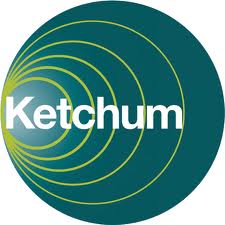The hype surrounding native advertising, sponsored content and/or promoted content is deafening. Online publishers, faced with diminished digital ad dollars and un-engaging ad creative, have turned to marketing-driven content that natively mimics editorial to invigorate reader engagement and revenue. Suddenly, a cottage industry has risen to help commercial entities come off as, well, less commercial.
The PR industry has touted its lineage of storytelling as a reason to claim ownership of this allegedly new marketing tactic, while advertising creatives declare “no biggie” as they set out to convert their punchy ad copy into longer-form faux editorial packages. There is no shortage of players willing to wax poetic about the promise and perils of native advertising. Here’s Google’s preventer of spam Matt Cutts sharing his (always) cogent POV on the latter:
Anyway, I thought it would be useful to bring together three “native” thought leaders to share their perspectives for an audience of PR pros at last month’s PRSA Digital Impact Conference in NYC. Jonathan Perelman leads agency relations for Buzzfeed, a booming site whose success many attribute to a mastery of edgy sponsored content, not to mention sophisticated editorial algorithms (and cats).
Also on the dais was Matthew Browher, a senior digital strategist at Ketchum who, for his consumer-facing clients like Gillette, has waded ever more deeply into the native advertising waters. Rounding out the troika was Digiday’s Josh Sternberg, a reporter who has penned some of the more insightful pieces on the content-sponsorship phenomenon.
 |
| Perelman, Sternberg, Himler & Browher at PRSA Digital Impact (l. to r.) (Photo: Alice Suh) |
Matt Browher
We have to be smart as communications experts…it will be interesting over the next two years to see how it all falls out. Definitely there’s a place for everybody. We can learn from what the ad companies do to promote content.
Josh Sternberg
When it comes to this type of content when the pendulum is swinging from commodity banner to branded content, sponsored content, native advertising, whatever euphemism you want to use, it’s going to put more pressure on the publisher, the agency, and the brand to create that content. At the end of the day, all people care about is good content. PR people have the skills to create that content. There’s going to be a big push in the PR agency world in the next 12-18 months toward this, especially as media agencies and ad agencies are getting squeezed.
Jonathan Perelman
I think PR is bound for a renaissance. How many of you will check your mobile device before you get out of bed in the morning? You’re checking email, Facebook, Twitter. I spent seven years at Google, but I don’t think anybody wakes up in the morning, goes to Google, and asks what should I search for now?
Social is the starting point online. The only reason that FB, Twitter and Pinterest works is because of content. Content is what makes FB work. Content is what makes Twitter work. PR is bound for a renaissance, because it’s about creating content. You’re creating stories, a communications strategy for a brand.
At Buzzfeed we have a creative department that works with brands and agencies to create content. Virgin Mobile is always on. They’re always creating content for Buzzfeed. It gives the brand a voice. It’s not just about buying a pre-paid phone. It’s now about Virgin Mobile having a voice. It has tapped into the millennials creating really interesting compelling content. And that’s why i think there’s a real renaissance bound for PR.
I spent almost every day with media agencies. They know how to buy media. They know how to traffic it. They know how to plan it. They’re great at that. What they don’t do is create the content and that’s why I think the PR pros in this room are really bound for a renaissance…if you can take that content, create that content and also know how to distribute it.
Content is king, but distribution is queen and she wears the pants. It’s not nearly enough to create a good piece of content. You have to understand how content spreads across the web.
An audio link to the full session, minus my opening remarks and half of Matt Browher’s remarks, can be found here (RT: 44 minutes). Worth hanging in to hear some of the repartee among the panelists.



